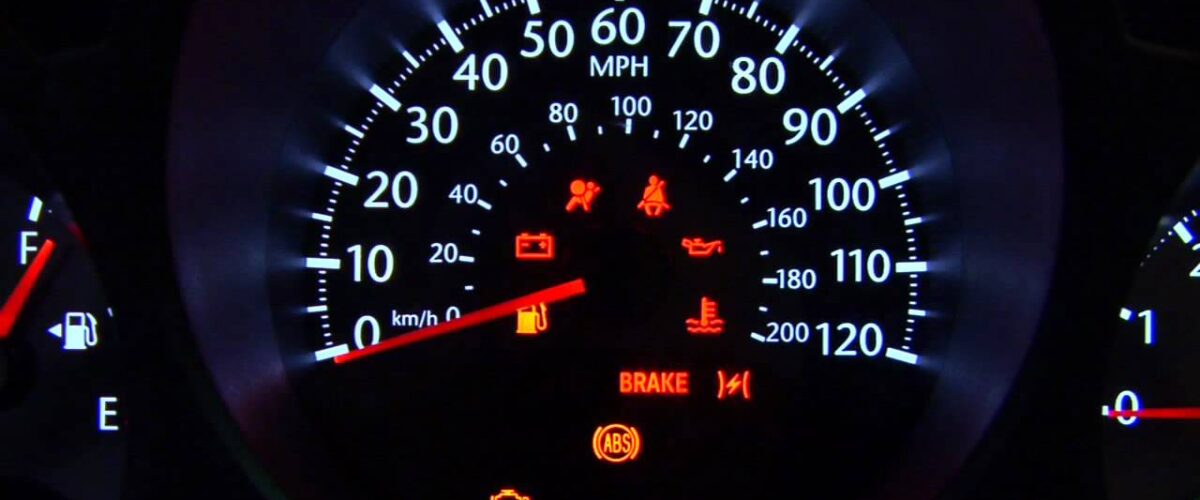21. Replace The Fuel Filter

The fuel filter sieves unwanted contaminants when the fuel is processed through the engine. Unfortunately, the fuel filter can get overwhelmed after a period of constant functioning. Be sure to read your manual to know after how long you should replace the filter – every type of car is different.
Brake Maintenance
Most people don’t appreciate the importance of a well-maintained braking system until winter when the road gets treacherous and slippery. That one-second delay could be the difference between life and death. In a nutshell, let’s find out how you can keep your brakes at the top of their game.
22. Check Brake Pads And Rotors

When you hit the brakes, it’s the brake pads and rotors that initiate the point of contacts to quickly stop the tires from moving. Since brake pads and rotors are directly in contact with the tires at full speed, it is evident that they’re very likely to get worn out due to the intense friction. Therefore, it is only logical to remove the tires and inspect the brake pads and rotors for any signs of attrition.
Additionally, if you notice it takes longer than usual to stop or you detect a burning odor whenever you hit the brakes, it may be time to change the brake pads and raptors.
23. Flush Your Brake Fluid

The brake fluid is used to transfer pressure from the brake pedals to the brake pads and rotors. Due to the fact that brake fluid is liquid, it baits moisture which is a catalyst for corrosion. Besides, the moisture can accumulate and drastically affect the performance of the brakes. If you check the brake fluid and notice a cloudy or milky mixture, it ought to be flushed out.
Most car manufacturers recommend the brake fluid to be replaced after every 25,000 miles.
24. Bleed The Brake Lines

Sometimes excess air can get stuck between the brake lines causing the braking system to deteriorate. As per the norm, you should bleed the brakes after flushing and replacing the brake fluid. However, bleeding the brake lines can be a very delicate process and it would be wise to seek the help of a technician during a brake inspection service. Typically, you can bleed the brakes after 2 or 3 years.
25. Replace Or Upgrade Brake Parts
It is possible to upgrade the brake parts if you feel like your vehicle should do better. For instance, you can upgrade to slotted disc brakes if you’re searching for something that is very effective when it comes to heat resistance. On the other hand, you could also switch to ceramic pads if you want to keep it quiet and reduce brake dust.
Maintain Your Car’s Electrical System
The car battery can go ignored for days until one chilly morning when you try to start your car and it does nothing but ‘click’. Want to make sure that never happens? Here’s how you go about it:
26. Drive Your Vehicle Regularly
It’s common sense but sometimes people forget that driving a car regularly keeps the battery charged. Even so, if you leave your car stagnant at the parking lot for weeks without any action, your battery may fail when you need it. For that reason, if you won’t be driving your vehicle for a few weeks, make sure you start it at least once or twice a week and leave the engine running for 20 to 30 minutes to power the battery.
Otherwise, if you’re traveling and there is nobody around to help you out, you can disconnect the battery before you leave.
27. Don’t Leave Car Electricals On Without Engine Running
If the engine is not running, don’t leave electrical car accessories like the lights or the radio turned on for a long period. Doing so will only suck the battery charge and probably leave you stranded. Like that scene of Walter White and Jesse Pinkman (Breaking Bad) in the middle of the desert without not enough food or water. Another thing; don’t leave the car key in the ignition or else you will kill your battery in a few hours.
28. Keep The Battery Case Clean
Apparently, excess dirt and moisture can spoil your battery to the extent of disrupting the charge. In fact, it can even cause corrosion or acid leak on the battery terminals. There is no excuse for this since it should only take you less than 30 minutes to clean the battery with water and apply grease to keep off the dirt and dampness.
29. Properly Secure The Battery In The Engine Bay

The car battery is a very fragile part of the engine; if you don’t secure it, the engine vibration can disorient the battery plates. Moreover, the vibrations can also damage the terminals prompting the car to stop. All that trouble can be avoided just by locking the battery in the engine bay.
30. Don’t Jump-Start A Flat Battery

Admittedly, most drivers break this rule. Now, don’t get it wrong; it doesn’t mean that you shouldn’t seek help from a friend when your battery is dead but sometimes a flat battery can get overwhelmed with excessive current enough to spoil the electronics. If you must do it, leave your headlights on to absorb any excess electrical current. Most importantly, read the user’s manual to know how it should be done on your car.

